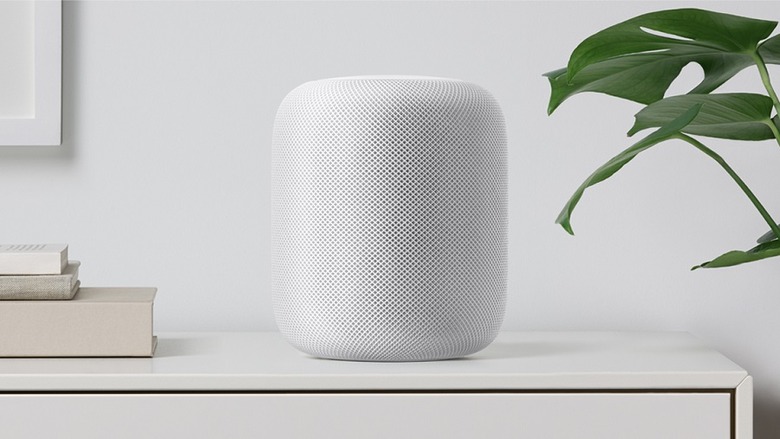These Are The Audio Sources Apple's HomePod Will Support At Launch
After a multi-week delay, Apple's HomePod is now available for pre-order, with deliveries expected to begin on February 9. While many of the early HomePod reviews we've seen have been overwhelmingly positive, there are still a number of unanswered questions about what Apple's smart speaker will bring to the table. This stems, in part, from the fact that reviewers were typically only granted 1 hour with the device in a controlled setting. Further, Apple itself has kept some details about the device shrouded in mystery and open to speculation.
To this point, Apple this week finally updated its HomePod tech specs page with official details regarding which audio sources will be supported by the speaker right out of the gate. Not surprisingly, the list is essentially an Apple-exclusive list of services and features.
Per the update, below are the audio sources that will play nicely with the HomePod, with the inclusion of iCloud Music Library being the most notable listing.
- Apple Music
- iTunes Music Purchases
- iCloud Music Library with an Apple Music or iTunes Match subscription
- Beats 1 Live Radio
- Podcasts
- AirPlay other content to HomePod from iPhone, iPad, iPod touch, Apple TV, and Mac
Of course, if you're hoping to use third-party streaming services like Spotify with the HomePod, you'll have to rely on AirPlay. It also remains unclear if users will be able to use the HomePod as a traditional Bluetooth speaker, though rumblings from the rumor mill suggest that this will not be possible.
Now whether or not users will be willing to fork over $349 for a smart speaker that works best with music obtained exclusively via the Apple ecosystem remains to be seen.
Explaining the thought process behind the device, Apple executive Phil Schiller recently said the following during an interview with Sound&Vision.
We think we can create a new kind of music experience in the home that sounds incredible, and is fun to interact with. That's what's driving us with HomePod. And it can also be the hub for your smart home. Voice technologies like Siri are also gaining in popularity with Siri responding to over 2 billion requests each week. This helps us understand how people actually interact with their devices, what they ask, and helps us create a product for the home that makes sense.
As it stands now, HomePods have not sold out, so you can still get the device by February 9 if you're so inclined.
